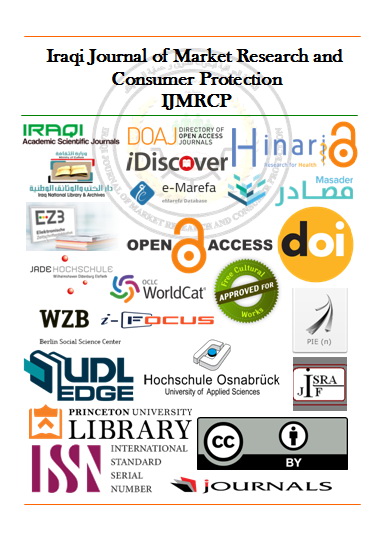USE OF SHRIMP WASTE POWDER (METAPENAEUS AFFINIS) AND PROTEASE ENZYME IN BROILERS FEED AND ITS EFFECT ON PHYSIOLOGICAL AND MICROBIAL CHARACTERISTICS AND INDICATORS OF FAT OXIDATION IN MEAT
USE OF SHRIMP WASTE POWDER (METAPENAEUS AFFINIS) AND PROTEASE ENZYME IN BROILERS FEED AND ITS EFFECT ON PHYSIOLOGICAL AND MICROBIAL CHARACTERISTICS AND INDICATORS OF FAT OXIDATION IN MEAT
Keywords:
Broilers, Shrimp waste, Physiological characteristics, Microbial characteristics, Indicators of oxidation in meatAbstract
This study was conducted in the poultry field of the Department of Animal Production/ College of Agricultural Engineering Sciences / University of Baghdad for the period from 42 days. Aiming to know the effect of using shrimp waste powder (Metapenaeus Affinis) and enzyme in broilers diet on physiological and microbial performance and indicators of fat oxidation in meat. 250 one-day-old ROSS308 chicks were used. The chicks were fed on diets containing shrimp waste treated with enzyme and not treated with protease enzyme by 0,4,6 %. The experiment included five treatments, with 5 replicates for each treatment, and each replicate contained 10 birds. The results showed a significant decrease (P≤0.05) in the concentration of ALT and AST for all treatments of the experiment compared to the control treatment, and a significant increase (P≤0.05) in the concentration of calcium element for the T5 treatment compared to all treatments and the control treatment. In addition, there was a significant increase (P≤0.05) in the concentration of phosphorous element for treatment T2 compared to the rest of the treatments. The results showed that there was a high significant decrease (P≤0.01) in the indicators of fat oxidation, MDA, PV and FFA, in the treatments of the experiment compared to the control treatment for the two periods of 1 day and 30 days of storage. Both T2 and T3 recorded a significant increase (P≤0.05) for the logarithmic number of Lactobacillus, and a significant decrease (P≤0.05) for the logarithmic number of coliform bacteria (E.coil) in treatment T2. We conclude from this study the possibility of using shrimp waste in broilers diets at rates of 4 and 6% to obtain a positive improvement in the physiological and microbial characteristics and indicators of fat oxidation in the meat and to increase the storage period of chicken meat for 30 days without deteriorating its quality.
Published
Issue
Section
License
Copyright (c) 2025 Iraqi Journal of Market Research and Consumer Protection

This work is licensed under a Creative Commons Attribution 4.0 International License.





